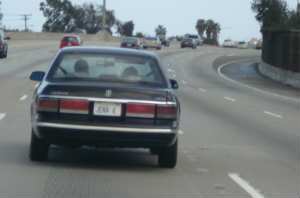Compton, Continued

At its council meeting last week, the Compton city council tried as evenly as possible to describe its position on the ongoing fallout from the ghetto-themed party at UC San Diego dubbed the 'Compton Cookout.' It wasn't easy. That ill-fated fete, organized by some of that university's fraternity brothers in 'honor' of Black History Month, exploded into a national story about the enduring potency of racial stereotypes that's taken on a life of its own. Of all the pieces written about the matter, few have explored the state of the city itself, probably because Compton has been shorthand for 'ghetto' for such a long time, it didn't seem all that necessary. Even those most outraged by the modern-day minstrelsy promoted by the cookout didn't really think of Compton the actual place has having a reputation to protect.
It does. Compton has labored in the last decade to turn its image around, and to some degree it's paid off--violent crime is down, retail activity is up, and the city has a spiffy homepage on its website that makes Compton look for all the world like a vacation destination, all blue skies and sandstone. Certain realities haven't changed, of course, but the PR strategy at city hall has been to promote the positive and bury the ghettoism for good. That strategy hit a snag last week when city officials paused to acknowledge the obvious, that the cookout debacle was, among many other things, an affront to those efforts.
Wisely, someone else did the acknowledging for them. The council listened solemnly as Daniel Widener, associate professor of history at UCSD and head of the Black Studies Department there (also my cousin), read an eloquent statement apologizing for the incident and for the ignorance and insensitivity that had led to it. It was fitting that his father (yes, my cousin as well) was in the audience to hear it--Michael Widener, a retired history professor of black studies at Compton College. Mayor Eric Perrodin thanked Widener--father and son--and said he was ready to collaborate with the council on some kind of action to counter this latest round of circumstantial bad press that's not about what anybody in Compton did, but about what Compton is.
But calling attention to what you don't want anyone to think about--that Compton is a low-class place--is tricky. Councilwoman Barbara Calhoun suggested that the UCSD culprits and other skeptics come down and "see Compton for themselves." I understood the impulse, but it struck me as exactly the wrong response. Compton has no explaining to do. Not this time.
This image was taken by flickr user anarchosyn. It was used under the Creative Commons license.


